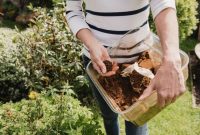As autumn’s bright colors fade and winter’s chill sets in, you need to carefully prepare your garden so that it does well even in the coldest months. Getting your yard ready for winter isn’t just a chore; it’s an important part of keeping it healthy and strong. This complete guide tells you everything you need to know to keep your garden safe over the winter and get it ready for a great spring.
How to Make Sure Your Garden Is Ready for Winter
What changes in the seasons mean for your garden
As the days get shorter and cooler, plants’ bodies go through changes. To properly prepare for winter, you need to understand these changes. Winterizing your yard is very important because it protects it from the hard weather and makes sure it grows back stronger when the better weather comes back.
Figuring out what your garden needs
Figuring Out What Your Plants Need
For winterization to work, you must first understand that different plants have different needs. Check out what each plant in your yard needs, taking into account things like how hardy it is, how much sunshine it gets, and how much water it needs. Customize your efforts to get ready for winter to meet these needs.
Getting the Ground Ready for Winter
Improving the quality of the soil for a strong garden
The dirt in a yard is what keeps it healthy. Add organic matter to the soil to get your garden ready for winter. This not only adds important nutrients, but it also changes the structure of the soil so it drains better and doesn’t get too wet when it rains in the winter.
How to Pick the Right Plants for Winter
Cold-Resistant Types for a Beautiful Winter Garden
A big part of getting your garden ready for winter is picking out the right plants. For best results, choose types that can handle frost and cold weather. You can add color to your winter scenery with winter bloomers like pansies and ornamental kale.
Keep Plants Safe from Frost
Ways to Keep Your Garden Safe from Frost in the Winter
Frost can be bad for plants because it can hurt their cells. Protect plants by doing things like covering them with frost cloth or choosing types that don’t get damaged by cold. Also, watering your yard before it gets frosty can keep it warm and stop damage from the frost.
How to Do Mulching
How to Get the Most Out of Mulch in the Winter
Putting down mulch is a big deal for winter garden care. Put down a thick layer of mulch around your plants to keep the soil warm, keep the temperature stable, and keep bugs from growing. Mulch also helps plants keep water, which is very important during dry winters.
Tips for Watering in Cold Weather
Making sure there is enough moisture without watering too much
Watering plants the right way in the winter is tricky. Plants need water, but too much watering can hurt them. When you water your plant, make sure the dirt is dry to the touch, but don’t let it get too wet. A garden that gets enough water is better able to handle the stresses of winter.
Tips for Pruning
How to Trim and Shape Your Winter Garden for Health
You don’t have to prune only in the spring. Getting rid of dead or sick trees is just as important in the winter. Do not prune too much in late fall, though, because it can cause new growth that could be damaged by the winter. Pay attention to shape and keeping the structure of branches that are already there.
Taking Care of Garden Tools
How to Take Care of Your Tools and Equipment in the Winter
Your farming tools are very important. With the right care, they’ll be ready to go in the spring. Your tools will not rust if you clean, oil, and store them in a dry place. Don’t forget that a little care now will save you time and work later on when things are busy.
Winter Bug Killing
How to Keep Unwanted People Out of Your Garden
In the winter, pests may hide out in your yard. Check plants often for signs of pests, and think about using natural ways to get rid of them. Dormant oils can kill insects that are overwintering and protect your yard without using dangerous chemicals.
Garden Clean-Up Time of Year
Clean up your garden to start over in the spring
A garden that is clean is one that is healthy. Get rid of trash, dead plants, and falling leaves so that pests and diseases don’t have a place to hide. This not only makes the area look better, but it also helps keep it healthy.
This is what composting does in the winter
How to Garden in the Cold Without Hurting the Environment
Don’t put your garbage pile to sleep for the winter. Even though breakdown slows down in cold weather, composting must still be done. In early spring, add compost to your garden beds to make them better. This will give your plants more nutrients to help them grow.
Do It Yourself Safety Structures
Making simple homes for plants that are easily hurt
Consider building your own protected structures for fragile plants that might have a hard time in the cold winter weather. You can protect plants from wind and cold by making covers out of things like cloth or old blankets. These structures are especially helpful for plants that are in pots or are just starting to grow.
How to Understand Microclimates
How to Use Microclimate Information to Plan Better Gardens
There may be microclimates in your yard. These are small, separate places with their own temperature and humidity levels. Learn about these microclimates to help you decide where to put plants. For example, south-facing walls receive and send out heat, making areas that are warmer, perfect for plants that need to spend the winter there.
Winter-Friendly Planting in Pots
How to Grow Plants Well in Pots During the Winter
Container gardening isn’t just something you can do in the summer. Pick plants that can handle cold weather and cover pots to keep roots from freezing. You can move plants to safer places during bad weather when you grow in containers, which gives you more options for designing your winter garden.
How to Get Around Common Winter Gardening Problems
How to Fix Problems to Make Sure Your Winter Garden Grows Well
There are some problems that come with gardening in the winter, like compacted dirt and plant diseases. Find common problems and fix them right away. Check your garden often and make changes as needed. This will help your plants stay healthy all winter.
How to Harvest in the Winter
Taking pleasure in the fruits (and vegetables) of your winter garden
You might not believe it, but you can pick fresh food in the winter. Some veggies, like Brussels sprouts and kale, do better when it’s cold outside. Plan your winter garden so that you can enjoy fresh foods grown in your own yard even when it’s cold outside.
Why winterizing your garden is a good idea
Long-term benefits of a garden that looks nice all year
Getting your yard ready for winter isn’t just a yearly job; it’s an investment in the coming years. The care you give your garden in the winter makes it ready to grow and thrive in the spring and summer. The benefits last all year, from plants that are healthy to an attractive garden area.
How to Prepare Your Garden for Winter: A Step-by-Step Guide
Winterizing your garden is a big job that includes getting to know your plants, getting the soil ready, and putting in place safety measures. By doing what this guide says, you’ll not only protect your garden from the hard winter weather, but you’ll also set it up for a successful garden in the coming seasons.
Questions That Are Often Asked
How often should I water my yard in the winter?
When it’s cold outside, water your plant when the ground feels dry. Make sure the dirt has enough water, but don’t water it too much, as that can cause root rot.
Which plants do you think do best in winter gardens?
Winter gardens are best with plants that can handle the cold, like decorative kale and flowers that bloom in the winter. Do some research and pick types that do well in colder weather.
Can I leave my tools outside in the winter?
During the winter, it’s best to keep planting tools inside. Before putting them away, clean and oil them to keep them from rusting and make sure they’re ready for next season.
Does composting work in the winter?
Even though breakdown slows down when it’s cold, composting can still be done in the winter. Keep adding yard waste and food scraps to your compost pile. When it’s full, use it in early spring.
How can I keep bugs out of my yard in the winter?
Even in the winter, check plants often for signs of pests. Use oils that are dormant to choke insects that are hibernating. Using natural ways to get rid of pests helps protect your yard without using dangerous drugs.
When should I trim my plants? Late fall or early spring?
Heavy trimming should not be done in late fall because it may cause new growth that is more likely to get damaged by winter. Instead, work on shaping the tree and getting rid of any dead or sick branches in late winter or early spring.
In conclusion
This book, Winterizing Your Garden: A Guide to Seasonal Prep, tells you how to make sure your garden not only lives but also grows well during the winter. By adapting your methods to the specific needs of your plants and taking precautions, you can have a strong and colorful garden all year long.






